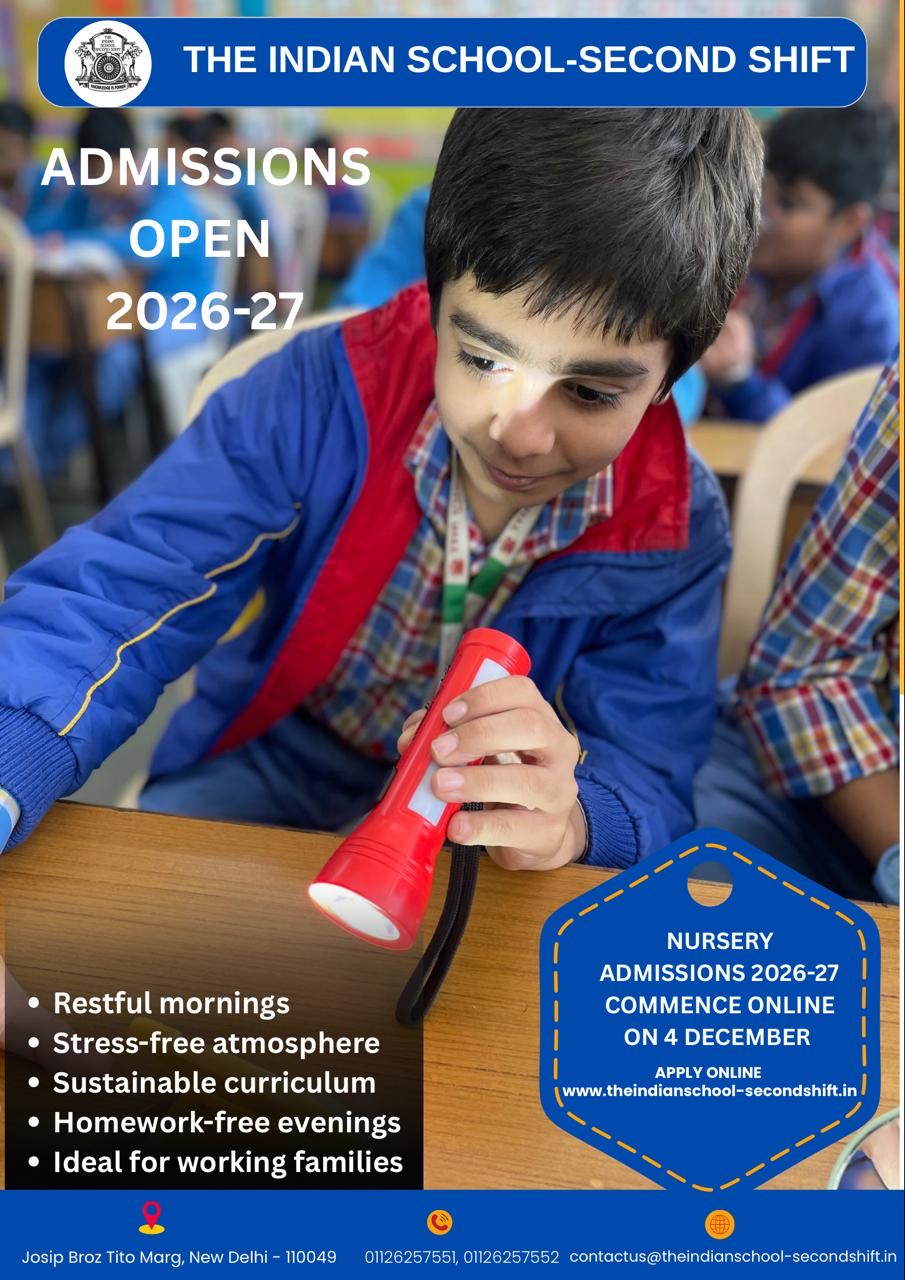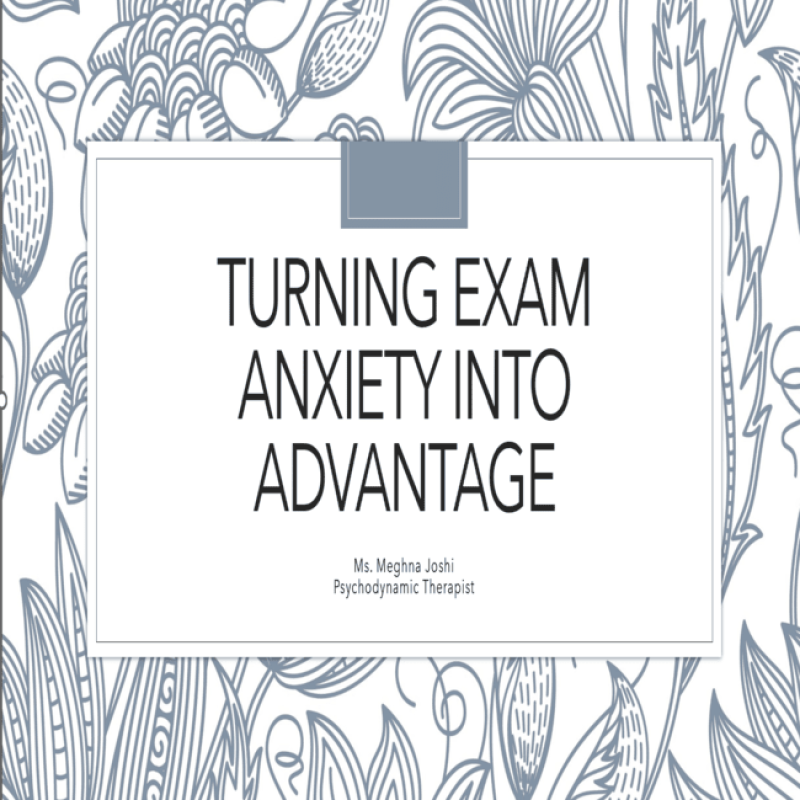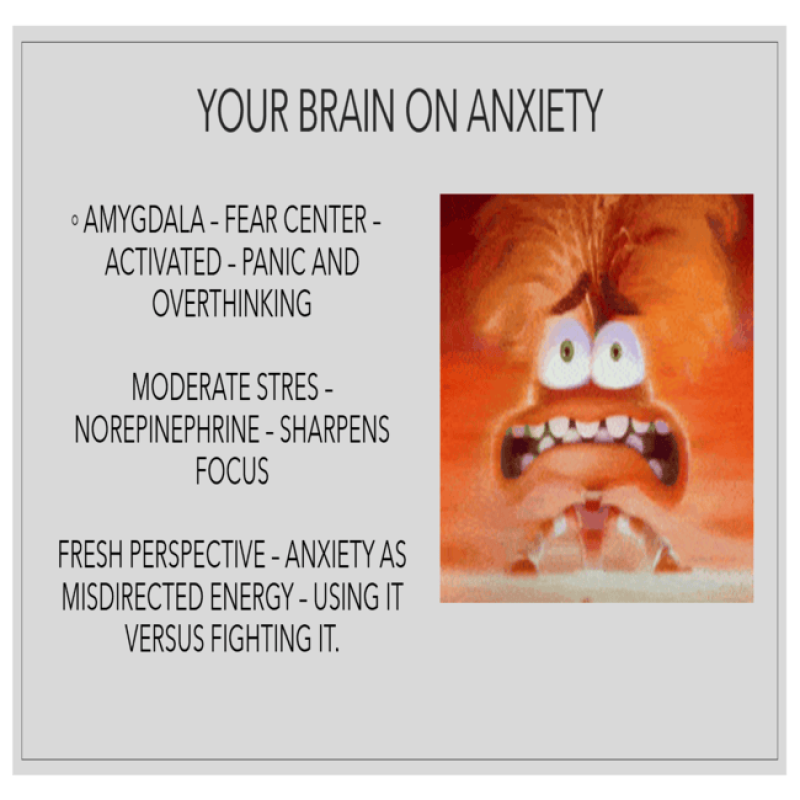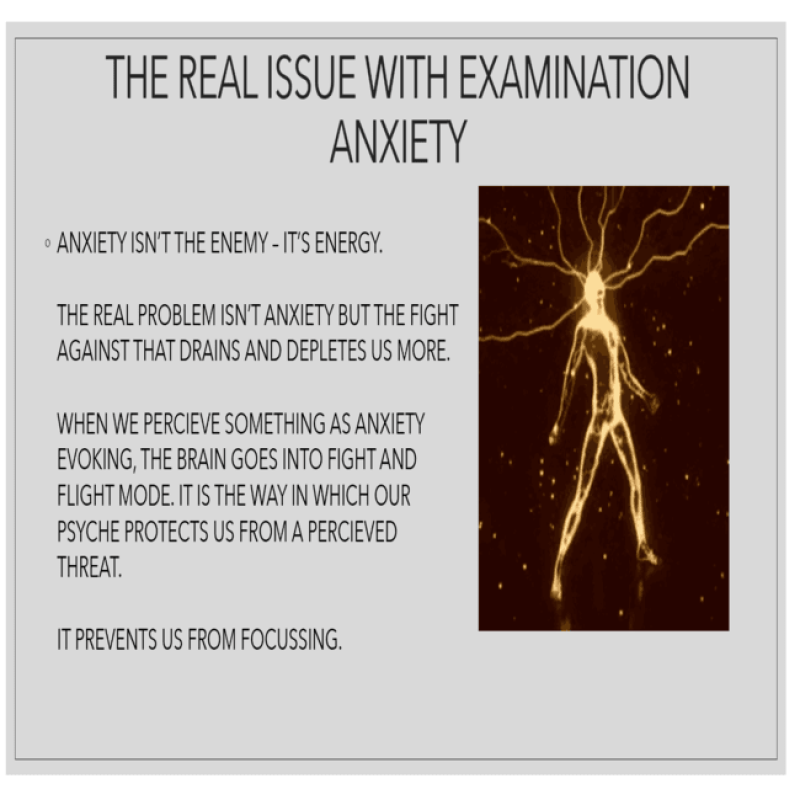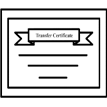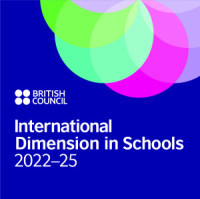Group Counselling Session on Examination Anxiety and Mental Health
A group counselling session was organised by School Counsellor, Ms Meghna Joshi, for class X to address the common struggles of examination anxiety and mental health challenges that often arise during the board examination period. The session aimed to go beyond traditional advice on managing anxiety, providing students not only with practical tools but also with a healthier perspective on how to navigate this transitional phase of their lives.
Before the commencement of the session, Principal Mrs Joshi addressed the students on the importance of maintaining discipline, decorum and managing one's personal conduct at this time.
The session was titled "Working with Anxiety, Not Against It", and sought to reframe the narrative around anxiety. Instead of viewing anxiety as a debilitating force to be eradicated, the students were encouraged to see it as a form of energy.
The paradox of anxiety was explored: the more that one attempts to fight it, the more one fuels it, leading to increased stress and depletion of energy. This insight helped the students understand how battling anxiety often exacerbates the very problem they are trying to solve.
The Psychology of Anxiety and Stress
Ms Joshi introduced the concept of the fight-or-flight response, a natural survival mechanism, explaining how it can impact focus and clarity. Operating from this heightened psychological state, such as during moments of stress or anxiety, often leads to impaired cognitive functions, including brain fog and procrastination—two common challenges faced by students.
To illustrate this, Ms Joshi provided relatable examples, such as the experience of reading and re-reading study materials, only to feel that nothing is being absorbed. In such instances, she emphasised that continuing to study under such conditions is ineffective, similar to asking a fish to fly. Instead, engaging in physical activity to re-centre the body can be a much more effective strategy. By taking breaks and allowing the body to reset, students can avoid the cycle of frustration and ineffective studying.
However, the speaker also discussed how moderate levels of stress can sharpen focus and enhance performance. By balancing stress with rest, time management, and self-care, students can support their central nervous system and improve their overall academic experience. She highlighted the importance of integrating mental health and well-being into study routines, as both are deeply interconnected.
Reframing Existential Anxiety
In addition to the practical strategies, Ms Joshi introduced existential perspectives to help students manage the larger anxieties associated with academic and life decisions. She discussed how, during this period of their lives, many students experience the pressure of making permanent, irreversible decisions. To address this, she invited students to reflect on the fluidity of their choices, encouraging them to view decision-making as an evolving process.
For example, a student who chooses the science stream with confidence may later decide to switch to an arts-based programme. This shift should not be seen as a failure but rather as an adaptation to new insights and personal growth. Ms Joshi prompted the students to think about how they would define success: Is it about staying committed to a choice that no longer aligns with their interests, or is it about adjusting their path based on new information about themselves?
This mindset also allowed students to reframe the concept of failure. Rather than viewing setbacks as insurmountable barriers, students were encouraged to reflect critically on challenges and learn from them. This shift in perspective helps students move away from a rigid, outcome-oriented approach to studying and adopt a more process-oriented mindset. Ironically, by focusing on optimising the quality of their learning experiences, students are more likely to perform better and achieve the marks they seek, without the stress of chasing grades in a desperate manner.
Realistic Goals and the Concept of "Good Enough-ness"
Ms Joshi guided the students in setting realistic academic goals. Instead of striving for perfection in every area, the students were encouraged to adopt the principle of "good enough-ness." This approach allows for setbacks and challenges, making it easier to maintain motivation and manage time effectively. By setting achievable goals, students can focus on the quality of their studies rather than striving for an unattainable ideal.
For instance, transitioning from procrastination to studying for long hours in one go may not be practical or sustainable. The brain does not efficiently encode crammed information into long-term memory, and excessive studying can lead to burnout. Ms. Joshi emphasized that by creating a study plan aligned with one’s capabilities and energy levels, students can increase both efficiency and motivation, creating a more positive and productive study experience.
By shifting the focus from fighting anxiety to working with it, students learned to embrace it as a source of energy rather than a debilitating force. The session also emphasised the importance of balancing stress with rest, self-care, and realistic goal-setting, helping students optimize their study habits and maintain mental well-being.

